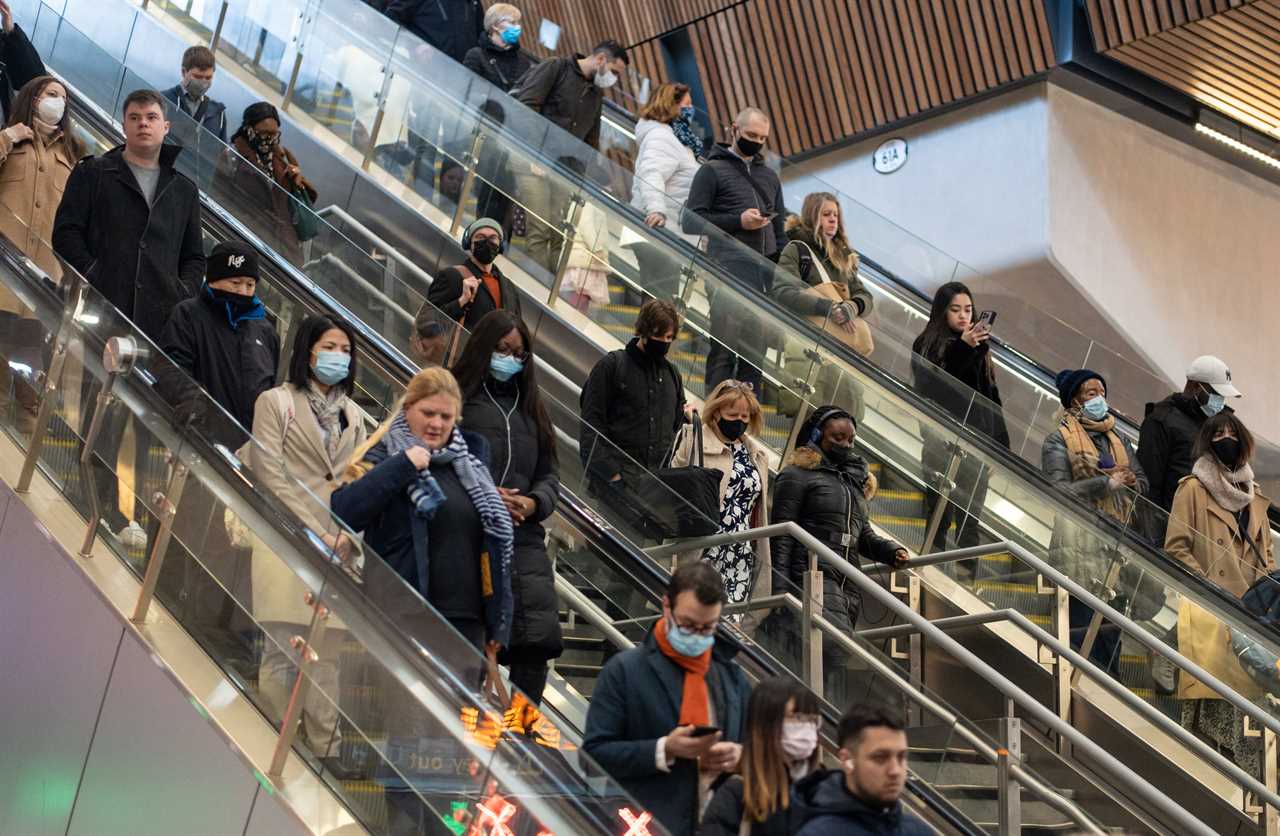CORONAVIRUS infections have fallen by 27 per cent in the last month, new data has revealed.
A further 54,218 people have tested positive for the bug today, down on 75,041 new infections on January 16.

It’s also down nine per cent of last week’s daily infections, when 68,214 people tested positive for the bug.
Sadly a further 199 people have died after 28 days of a positive coronavirus test.
While this in down from last week’s rate of 276 it’s up from this time last month, when on January 16, 91 people lost their lives.
It comes as data from the Office for National Statistics shows that one in 20 people now have the bug in the UK.
In England, the percentage of people testing positive with Covid has decreased in the last week, with around 2,449,100 people having caught the virus.
Across most regions there has been a fall in infection rates, aside from the South West where the experts say the trend is ‘uncertain’.
The number of people testing positive also varied with age groups, with the highest rates being seen in those aged 2 to school year 6.
The lowest rate was in those aged 70 and over in the week ending February 12.
Sarah Crofts, Head of Analytical Outputs for the Covid-19 Infection Survey, said: “Infections across the UK continue to fluctuate at a high level. Our latest data show recent decreases in England and Wales, while the latest trends are uncertain in Scotland and Northern Ireland.
“Children of nursery and primary school age continue to be the group with the highest infection levels, which we will continue to monitor so we can measure the impact of the half term holidays.”
While people are still becoming infected with coronavirus, the majority of people who catch Omicron are experiencing milder, cold-like symptoms.
GET PROTECTED
The best way to protect yourself and others is to get a coronavirus vaccine and it was today announced that pharmaceutical giant Moderna will be the first to trial its Omicron booster in the UK.
It will become the first major UK study to use a vaccine not based on the original Wuhan strain of the virus.
Health Secretary Sajid Javid said: “The UK is a world leader when it comes to the research and development of vaccines and medicines.
“It’s fantastic to see these capabilities being put to good use, with almost 3,000 people expected to take part in this important clinical trial.
“I urge anyone eligible to take part in this vital research and play their part in protecting the country for years to come as we learn to live with Covid-19.”
The Moderna trial will test the new jab as a third or fourth dose and will be run from 29 hospitals all over England, Scotland and Wales.
Healthy volunteers aged 16 and older will be eligible for the trial as long as they have not had Covid since November 2021.
They must not have had a vaccine in the past three months either, but must have had two doses so the new jab can be used as a third or fourth booster dose.
The US firm redesigned the vaccine after tests revealed the original jabs do not give good protection against catching Omicron because it is so mutated.
BEST PROTECTION
Ministers have floated plans for annual Covid vaccination for high risk people – and using doses made for specific variants should mean fewer jabs.
Studies found that protection against Omicron from the current vaccines begins to wear off after a few months, even with a booster.
It comes as experts at UKHSA checked long Covid studies and found getting vaccinated slashes the risk of the condition by half.
Around 1.3million Brits still have symptoms more than a month after catching Covid but having even just one jab can prevent it.
Dr Mary Ramsay, vaccines chief at UKHSA, said: “Vaccination is the best way to protect yourself from serious symptoms when you get infected and may also help to reduce the longer-term impact.”






